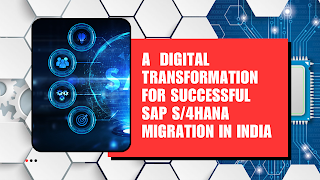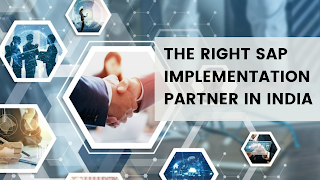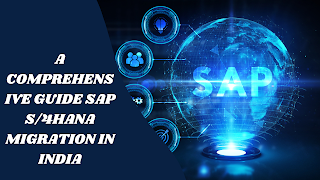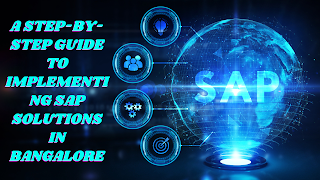A Digital Transformation for Successful SAP S/4HANA Migration in India

Introduction: In today's rapidly evolving business landscape, organizations in India are increasingly considering SAP S/4HANA migration as a strategic move to embrace digital transformation. This next-generation ERP system empowers enterprises with real-time analytics, streamlined processes, and enhanced agility. In this blog post, we will explore the key aspects and best practices for SAP S/4HANA migration in India , helping businesses embark on a successful digital transformation journey. Understanding SAP S/4HANA: Begin by gaining a comprehensive understanding of SAP S/4HANA and its benefits. It is an intelligent, in-memory ERP system that unifies various business functions, enabling real-time insights and predictive capabilities. Familiarize yourself with its key features, including enhanced user experience, simplified business processes, and advanced analytics. Assessing Readiness: Evaluate your organization's readiness for SAP S/4HANA migration. Assess your current system






.png)
.png)
